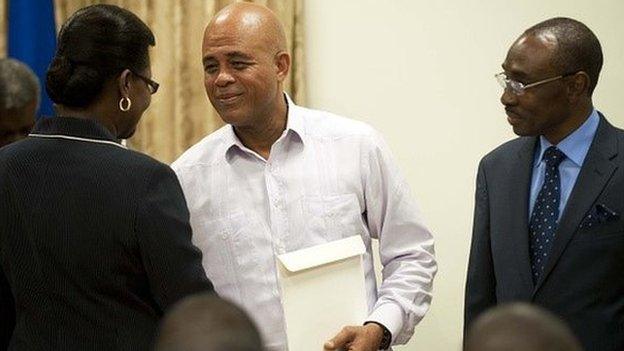No violence as Haiti holds elections
- Published
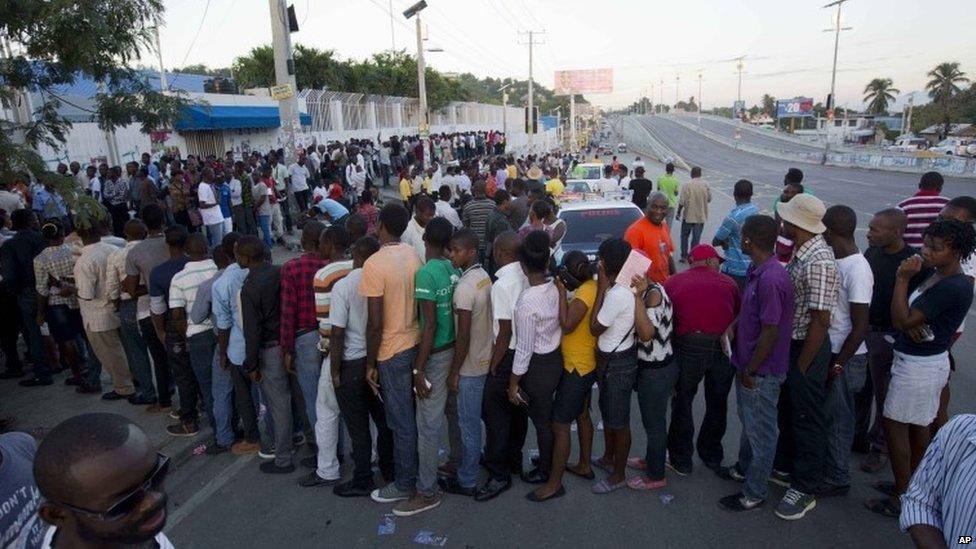
Turnout was high but most Haitians waited patiently for their turn to cast their votes
General elections in Haiti have gone ahead without major incidents, less than three months after parliamentary polls that were marred by violence.
Some 15,000 policemen and United Nations peacekeeping force members were deployed to prevent any incidents.
Haitians were choosing from more than 50 candidates to succeed President Michel Martelly.
They were also electing members of the Congress, which was dissolved in January amid a political crisis.
Results are not expected to be known until next month.
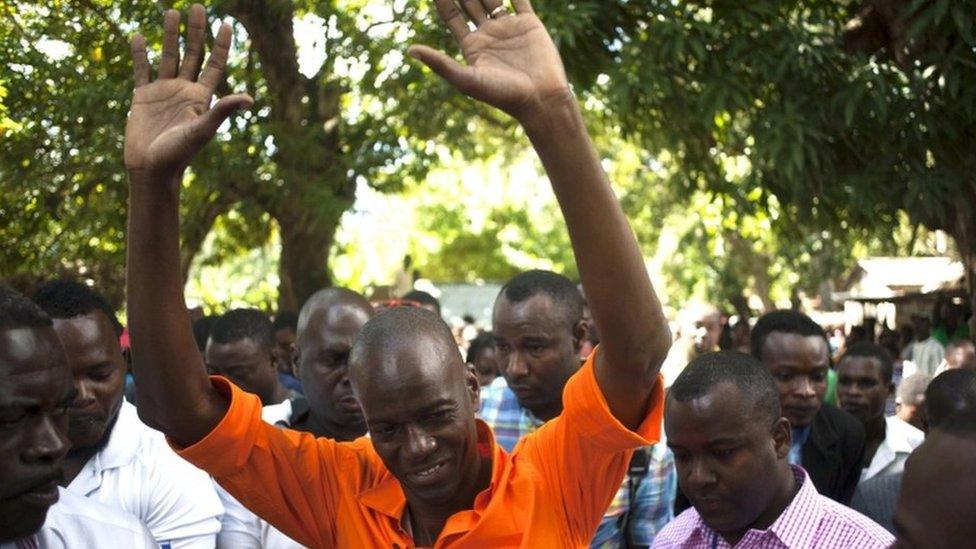
Jovenel Moise has been chosen by President Martelly to run for the governing Haitian Party of Bald Heads (Parti Haitien Tet Kale)
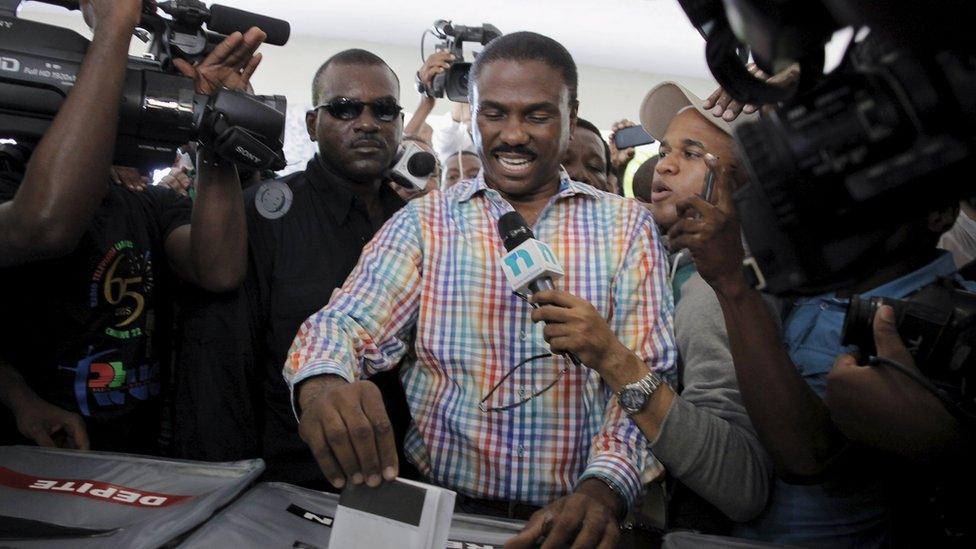
Jude Celestin is expected to face Mr Moise on the 27 December run-off vote for president
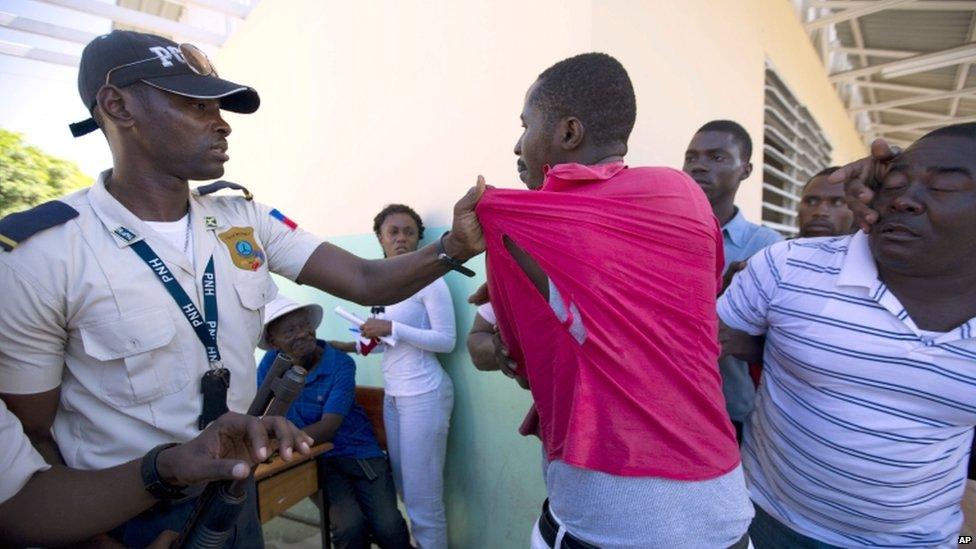
National police made dozens of arrests for people on suspicion of fraud
Turnout was high across Haiti, despite the failure of the 9 August vote.
Only a few candidates were officially elected then. New polls had be held in a number of constituencies.
'Going really well'
"On August 9, I had left home to go vote, but I saw people pushing each other around, people causing mayhem and throwing things," 26-year-old voter Franzty Jeudi told the AFP news agency in the capital, Port-au-Prince.
"Today, it's going really well. I came to vote with my parents and we are at ease," he said earlier on Sunday.
President Michel Martelly is not allowed to seek re-election.
But his chosen candidate, Jovenel Moise, is among the favourites.
Mr Moise, who owns a banana exporting business, is expected to face Jude Celestin, a Swiss-educated mechanical engineer, in a run-off vote on 27 December.
Whoever wins will face a daunting task when taking over from Mr Martelly in February.
Haiti is the poorest nation in the Americas.
Since it was devastated by an earthquake in 2010, it has relied largely on international donations and foreign aid from the United States and other countries.
- Published7 October 2015
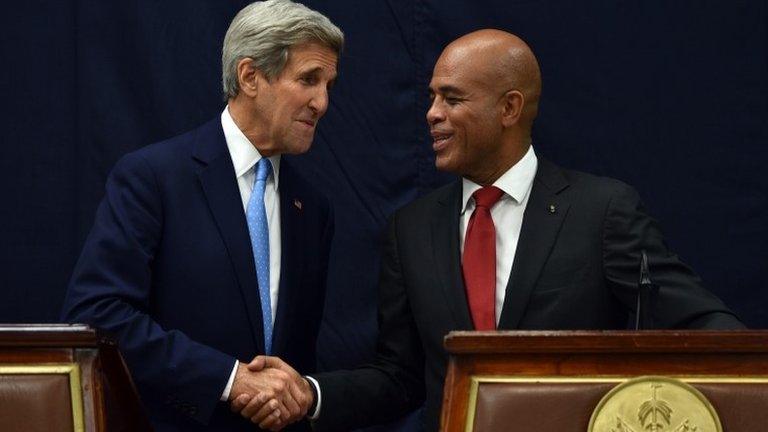
- Published9 August 2015
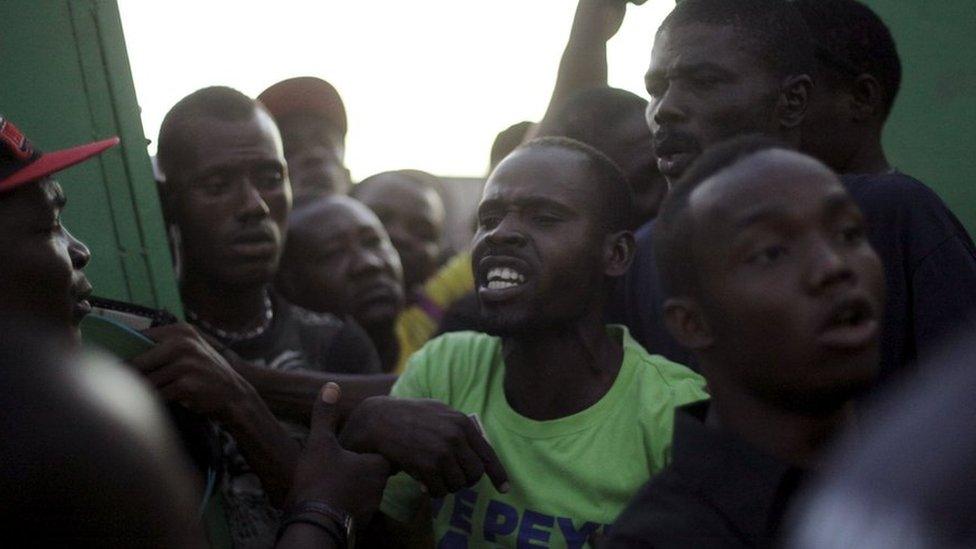
- Published6 August 2015
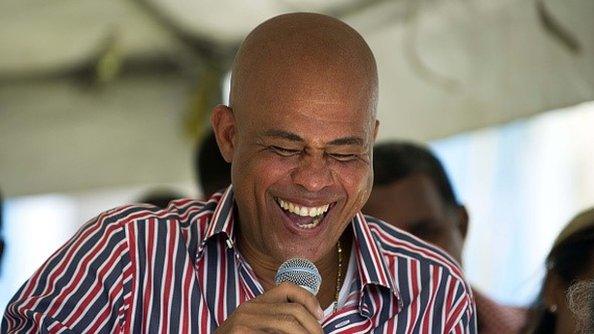
- Published20 January 2015
